Can Essential Oils Work if You Can’t Smell
Have you ever wondered about the power of essential oils and how they can benefit your health and well-being?
This comprehensive article will explore the world of essential oils, including does smelling essential oils work, how they work, and the different types available.
We will also discuss the numerous benefits of essential oils, from aromatherapy to pain relief. Can essential oils still be effective for those who have lost their sense of smell?
Join us as we delve into the fascinating world of essential oils and discover alternative ways to use them for maximum impact.
Key Takeaways:
What Are Essential Oils?
Essential oils are highly concentrated plant extracts containing the natural constituents and aromatic essences of various plants. These oils are commonly used in aromatherapy due to their therapeutic benefits and pleasant smells.
These potent oils have been used for centuries across different cultures for their healing properties. The origins of essential oils can be traced back to ancient civilizations in Egypt, Greece, and Rome, where they were valued for their medicinal and aromatic properties.
- Extraction methods vary depending on the plant, with popular techniques including steam distillation, cold pressing, and solvent extraction.
The diverse range of essential oils such as lavender, peppermint, and tea tree offer a multitude of benefits. Lavender is known for its calming effects, peppermint for its invigorating scent, and tea tree for its antibacterial properties.
These oils are used not only in aromatherapy but also in skincare, hair care, massage therapy, and even in household cleaning products. Their natural properties make them a popular choice for those seeking alternative remedies and holistic practices.
How Are Essential Oils Used?
Essential oils are primarily used through inhalation or topical application to experience their aromatic benefits and potential therapeutic effects.
Diffusion is an effective method for enjoying the fragrance of essential oils in the air, which can promote relaxation, improve mood, and even provide respiratory benefits.
Through massage, these oils can be absorbed by the skin, fostering both physical and emotional wellness.
Utilizing essential oils in skincare, whether through masks, serums, or lotions, can target specific skin concerns like acne, aging, or inflammation due to their antibacterial, anti-inflammatory, and antioxidant properties.
How Do Essential Oils Work?
Essential oils work by interacting with olfactory receptors in the nose, triggering the sense of smell and potentially providing physical and psychological benefits through the activation of specific genes.
When essential oils are inhaled, their volatile molecules bind to olfactory receptors located in the nasal cavity. These receptors then send signals to the brain’s limbic system, which is involved in regulating emotions, memory, and behavior. This interaction can lead to various physiological responses such as relaxation, improved mood, or heightened focus.
Some research suggests that certain essential oils can directly influence gene expression, altering the activity of genes related to inflammation, stress response, and immune function. This modulation of gene expression may contribute to the therapeutic effects of essential oils on conditions like anxiety, insomnia, or pain.
What Are the Different Types of Essential Oils?
There is a wide variety of essential oils available, each derived from different plants and containing unique natural constituents such as esters, terpenes, and phenols.
Essential oils can be categorized based on their plant sources into groups like flowers (such as lavender and rose), herbs (like peppermint and thyme), woods (cedarwood and sandalwood), and citrus fruits (lemon and orange). The chemical compositions of these oils vary, with some being rich in calming esters, others in invigorating terpenes, and some in powerful antibacterial phenols.
For instance, lavender essential oil is known for its high content of linalool (an alcohol) and linalyl acetate (an ester), giving it calming and stress-relief properties, making it popular for aromatherapy and relaxation therapies.
What Are the Benefits of Essential Oils?
The benefits of essential oils encompass a wide range of applications, from promoting relaxation and stress relief in aromatherapy to providing relief from pain and supporting skin care routines.
One of the key advantages of essential oils lies in their ability to alleviate stress and induce a sense of calm. Aromatherapy, the practice of using these oils for therapeutic purposes, can help reduce anxiety and improve mood. Essential oils like lavender and chamomile are especially renowned for their calming properties. For pain relief, oils such as peppermint and eucalyptus offer natural alternatives to conventional medications, aiding in reducing inflammation and muscle tension. In skincare, essential oils like tea tree and rosehip are hailed for their antibacterial and anti-inflammatory qualities, beneficial for combating acne and promoting healthy skin.
Aromatherapy
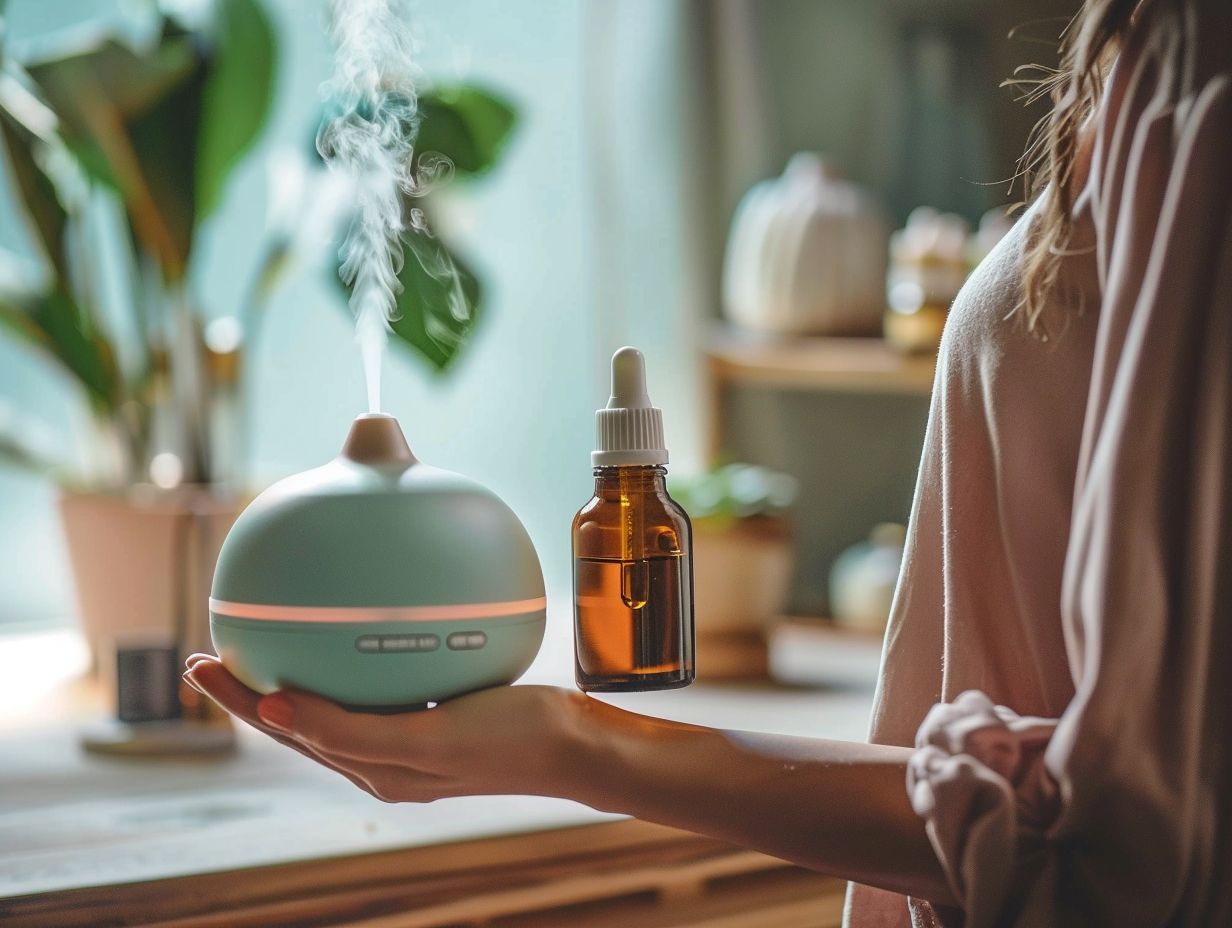
These scents are not just pleasant aromas; they are believed to have the power to influence mood, reduce stress, and promote relaxation, creating a holistic experience that combines the senses with emotions.
Regarding anosmia, where individuals have a reduced or loss of sense of smell, aromatherapy can still offer benefits through its impact on the limbic system, the part of the brain associated with emotions and memories. By stimulating the limbic system, essential oils can trigger responses that go beyond the olfactory senses, potentially enhancing other sensory experiences.
Stress Relief
Essential oils are often used for stress relief through olfactory training, a technique that can be beneficial, especially for those experiencing anosmia caused by various health factors.
Olfactory training involves repeatedly smelling different scents, activating the olfactory system to improve smell sensitivity. Research suggests that individuals with conditions like sinus infections, head injuries, or COVID-19 may benefit from this technique.
Studies have shown that specific essential oils like lavender, eucalyptus, and peppermint can help reduce stress and anxiety when used in aromatherapy. These oils have calming properties that can positively impact emotional well-being, contributing to overall relaxation and mood improvement.
Pain Relief
Essential oils offer therapeutic benefits that can aid in pain relief, providing alternative solutions for individuals, including those suffering from anosmia and exploring complementary remedies like zinc products.
These aromatic extracts, derived from plants, possess various properties that can help alleviate pain through their analgesic, anti-inflammatory, and calming effects. When inhaled or applied topically, essential oils can target pain receptors, offering a natural and gentle approach to managing discomfort. For individuals with anosmia, who may have difficulty perceiving scents, essential oils can still deliver relief through their chemical composition. As essential oils are known for their holistic healing properties, they are increasingly utilized as complementary treatments alongside conventional medicine, especially for chronic pain conditions. Incorporating essential oils into a pain management regimen can enhance overall well-being and quality of life.”
Skin Care
Essential oils are commonly incorporated into skincare routines due to their natural properties, but it’s essential to consider allergies and take safety precautions before using these oils on the skin.
Each essential oil offers unique benefits that can address various skin concerns. For instance, lavender oil is renowned for its calming properties, making it ideal for sensitive or irritated skin, while tea tree oil is known for its antibacterial and antifungal properties, beneficial for acne-prone skin.
It’s crucial to dilute essential oils properly before application to avoid skin irritation or adverse reactions, especially for individuals with sensitive skin. Conduct a patch test before using any new oil to check for potential allergic reactions, and always follow recommended guidelines for safe usage.
Can Essential Oils Work if You Can’t Smell?
While anosmia can affect the sense of smell, essential oils can still provide benefits beyond olfactory perception, offering potential physical and emotional advantages to anosmic individuals.
Essential oils are known for their therapeutic properties, such as reducing stress, promoting relaxation, and even boosting immunity. For those with anosmia, these benefits become even more significant as they can rely on the healing properties of essential oils without the need for scent recognition.
The anti-inflammatory and antimicrobial properties of essential oils can aid in overall health and well-being for anosmic individuals. The psychological benefits of using essential oils, like improving mood and enhancing mental clarity, can be particularly valuable for those experiencing olfactory impairments.
What Causes Loss of Smell?
The loss of smell, known as anosmia, can be caused by various factors such as physical conditions, injuries, or infections, leading to psychological effects that may require assessment by a knowledgeable person.
Physical causes of anosmia can include nasal polyps, sinus infections, or head injuries, disrupting the olfactory function. Certain medical conditions like Alzheimer’s disease or Parkinson’s can affect the sense of smell.
On the other hand, psychological factors such as depression or anxiety can also contribute to olfactory changes. These aspects underline the importance of consulting a healthcare professional for a thorough evaluation and guidance on potential treatment options to manage anosmia effectively.
How Does Loss of Smell Affect the Use of Essential Oils?
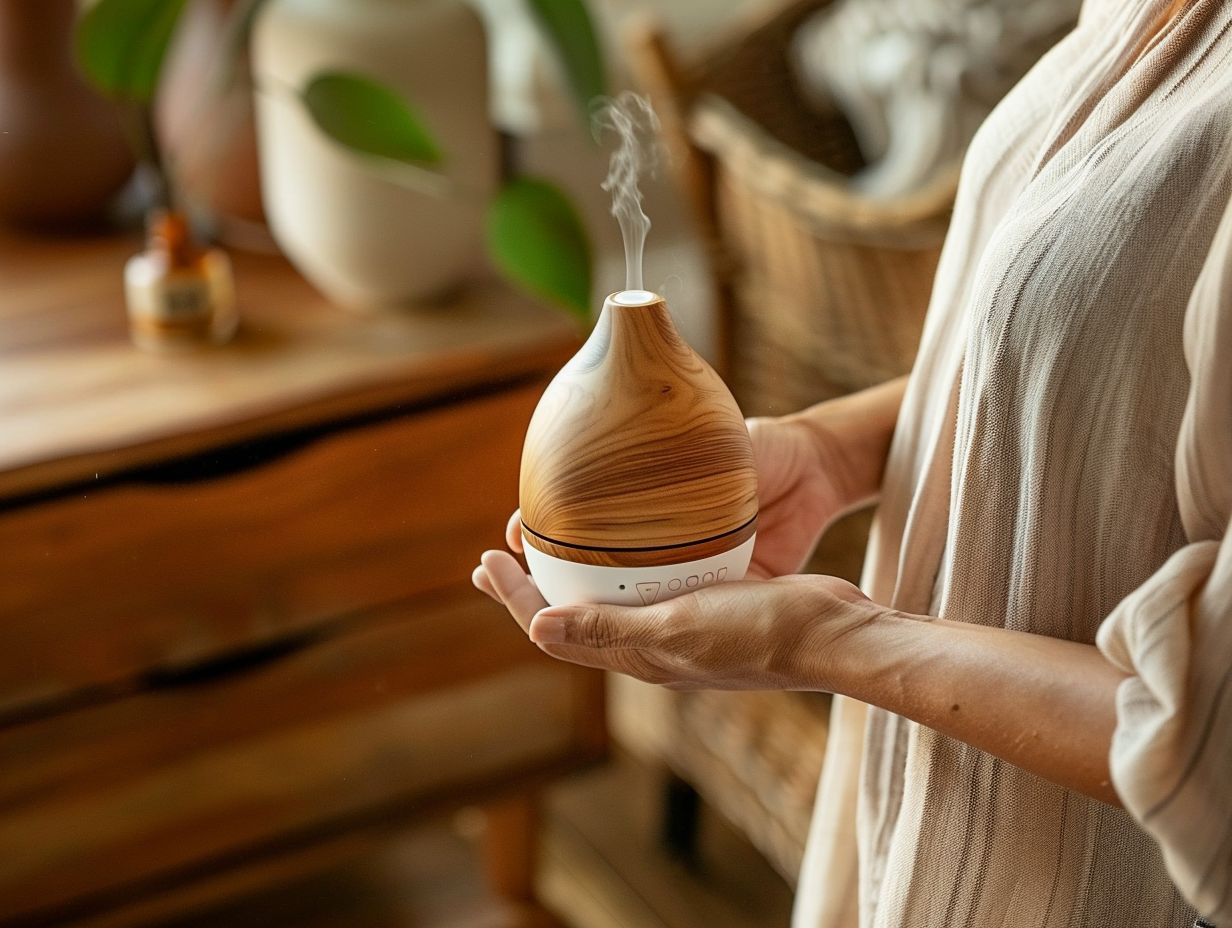
Essential oils rely heavily on their aromatic properties to trigger various physiological responses in the body, which are closely tied to the olfactory system. Anosmia, the loss of smell, can significantly impact the efficacy of essential oils as the sense of smell plays a crucial role in how these oils are perceived by the brain.
Studies have shown that individuals with olfactory impairments may struggle to detect the subtle nuances in fragrance, which could affect their ability to benefit from essential oils’ therapeutic properties. This reduced sensitivity to aroma can lead to a diminished experience and potentially alter the response patterns typically seen in individuals with intact olfaction.
What Are Alternative Ways to Use Essential Oils?
Aside from inhalation, essential oils can also be used through topical application for direct skin benefits or ingestion for internal health support, providing alternative methods of enjoying their therapeutic effects.
Topical application of essential oils involves their direct application on the skin, where they can be absorbed and provide numerous benefits. These oils can be diluted in carrier oils like coconut or jojoba before applying to the skin, offering solutions for skincare issues such as acne, eczema, and dryness. Proper dilution ratios should be followed to prevent skin irritation or sensitization.
On the other hand, ingestion of essential oils should be approached with caution due to their potency. Before considering this method, it is crucial to consult a qualified aromatherapist or healthcare provider for guidance on safe consumption practices. Ingesting essential oils can potentially offer digestive, immune-boosting, and mood-enhancing benefits, but it is vital to adhere strictly to recommended dosages to avoid adverse reactions.
Topical Application
Topical application of essential oils involves directly applying these oils to the skin, allowing their chemical constituents to penetrate and interact with the body, providing localized benefits.
When essential oils are applied topically, they can be absorbed through the skin and enter the bloodstream, where their therapeutic properties can take effect. The skin is a highly efficient barrier, but essential oils are composed of molecules small enough to pass through the skin’s layers, reaching deeper tissues.
Does sniffing essential oils work to target specific areas, whether it’s addressing acne-prone skin, soothing sore muscles, or alleviating headaches?
The process of applying these oils directly to the skin allows for a concentrated application, ensuring that the oils are absorbed efficiently by the body.
Ingestion
Ingesting essential oils involves consuming these oils internally, which can have effects over time due to the presence of bioactive compounds like esters that may offer health benefits when used responsibly.
Essential oils contain concentrated extracts from plants and the bioactive compounds present can interact with the body in various ways. For instance, esters, which are commonly found in essential oils like lavender and chamomile, are known for their calming and soothing properties.
It’s important to note that the effects of ingesting essential oils are not immediate, as they gradually build up in the system. This slow release of compounds allows for a sustained impact on the body, potentially leading to long-term wellness benefits when integrated into a balanced lifestyle.
Inhalation
Inhalation of essential oils remains a popular method for experiencing their aroma and potential benefits, with certain scents lingering for years later, creating lasting olfactory impressions.
When essential oils are inhaled, the aromatic compounds have a direct pathway to the limbic system in the brain, which controls emotions and memory.
Many individuals turn to lavender essential oil for its calming properties, while peppermint oil is often used for its invigorating effects.
Whether through diffusion, inhalers, or steam inhalation, the method of inhalation can greatly impact how long the scent lingers in a space.
Are There Any Risks or Side Effects of Using Essential Oils?
While essential oils offer various benefits, it’s crucial to consider potential risks and side effects, especially concerning allergies and interactions with existing health conditions, warranting advice from a physician or knowledgeable person.
Essential oils are highly concentrated plant extracts that can trigger adverse reactions if not used properly. Safety precautions must be taken to avoid skin irritation, allergic reactions, or even toxicity. Individuals with sensitive skin, respiratory issues, or certain medical conditions need to be extra cautious. Seek guidance from a healthcare provider or a qualified aromatherapist to ensure the appropriate use of essential oils. It’s advisable to perform a patch test before applying essential oils topically to check for any allergic responses.
Frequently Asked Questions
Can Essential Oils Still Be Effective If You Can’t Smell Them?
Yes, essential oils can still work even if you can’t smell them. While the aroma of essential oils is often a key factor in their benefits, it is not the only way they can be effective. Essential oils can also be absorbed through the skin and have therapeutic effects.
Why Can’t I Smell Essential Oils?
There are a few reasons why someone may not be able to smell essential oils. It could be due to a temporary blockage in the nasal passages, allergies, or a health condition that affects the sense of smell. It is important to speak with a healthcare professional if you experience a sudden loss of smell.
Can Anosmia (Loss of Smell) Affect the Benefits of Essential Oils?
Anosmia, or the loss of smell, can affect the perceived benefits of essential oils as the aroma is a big part of the experience. However, the therapeutic effects of essential oils can still be experienced through inhalation and absorption into the skin. In some cases, anosmia may even heighten the sensitivity to the physical effects of essential oils.
What Are Some Ways to Use Essential Oils When You Can’t Smell?
If you are unable to smell essential oils, there are still ways to experience their benefits. You can apply them topically to your skin, add them to a carrier oil for massage, or use them in a diffuser. You can also try inhaling the oils through steam inhalation or using them in a bath.
Can Essential Oils Help with Anosmia?
While essential oils cannot cure anosmia, they may be able to offer some relief for those who have lost their sense of smell. Some essential oils, such as rosemary and peppermint, have been shown to improve cognitive function and stimulate the brain. This may help with the perception of smell.
Are There Any Risks to Using Essential Oils If I Can’t Smell?
If you are unable to smell, it is important to take precautions when using essential oils. Make sure to dilute them properly and perform a skin patch test before using them topically. It is also important to consult with a healthcare professional before using essential oils if you have any underlying health conditions.

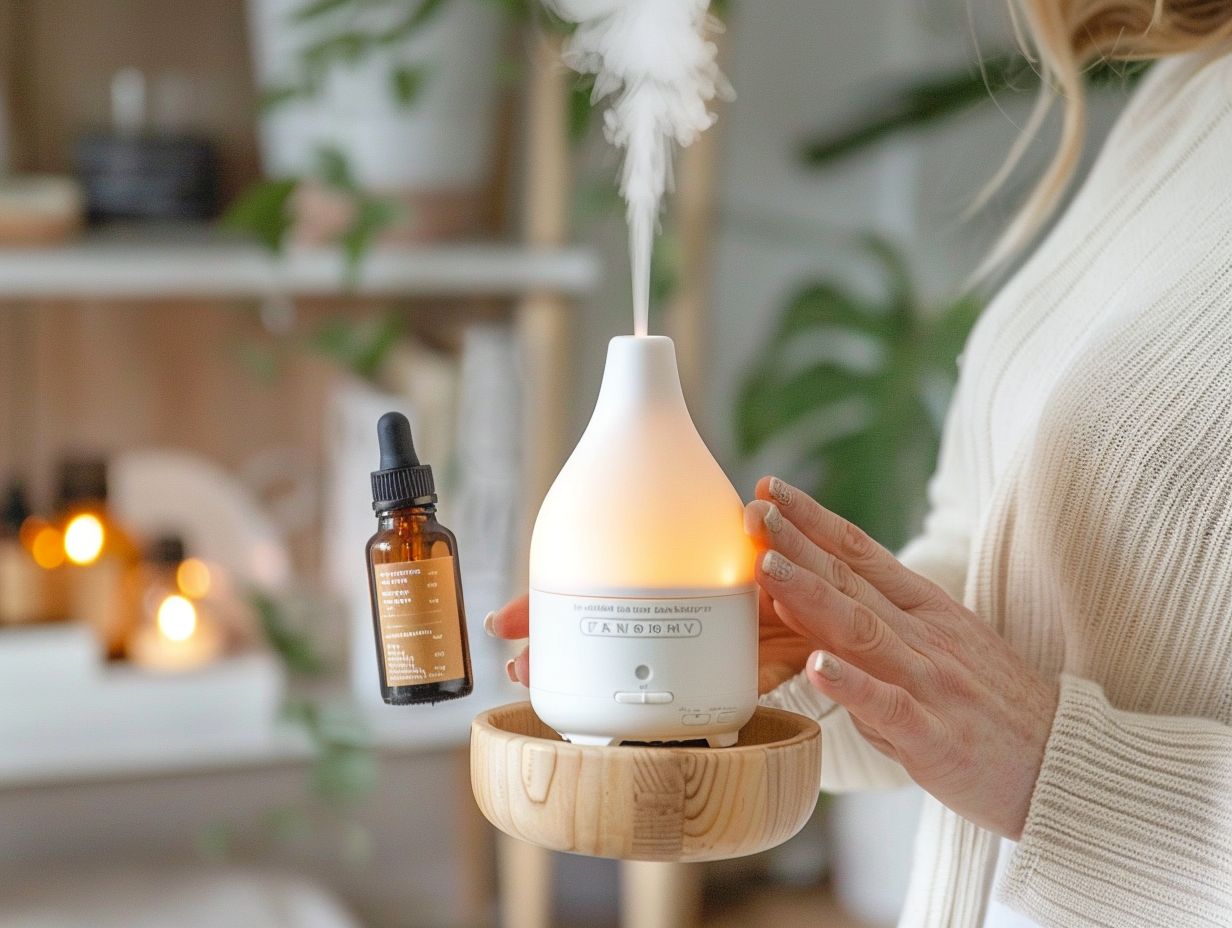
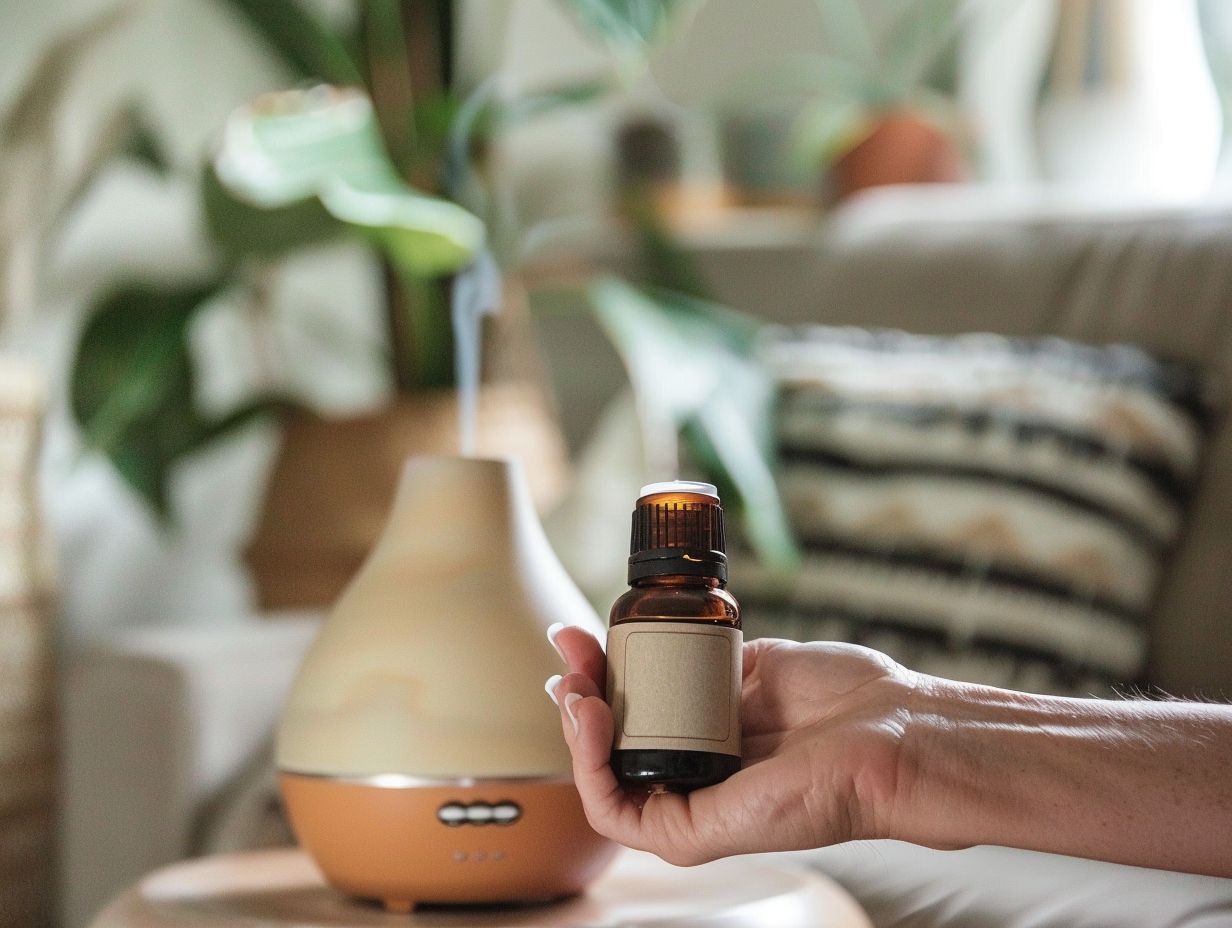

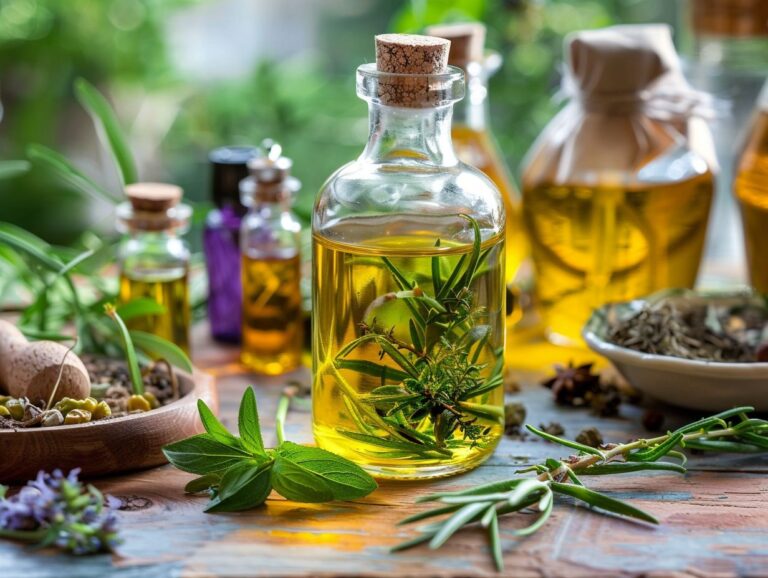
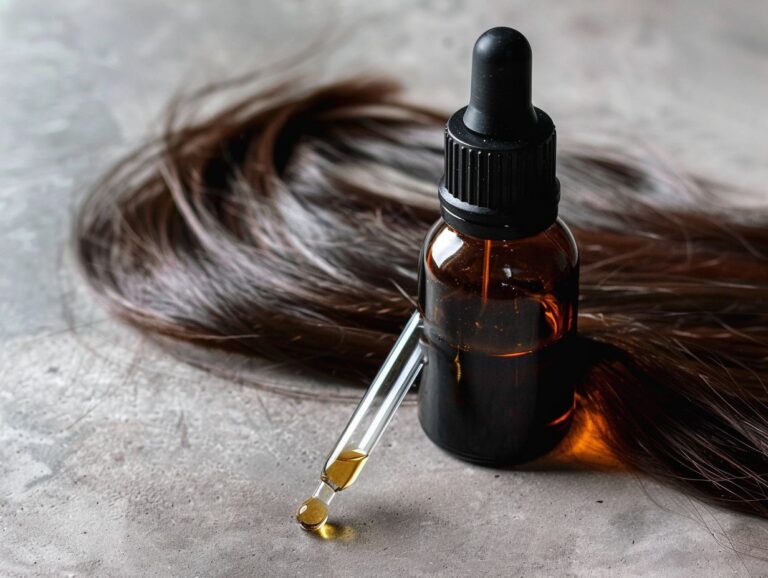


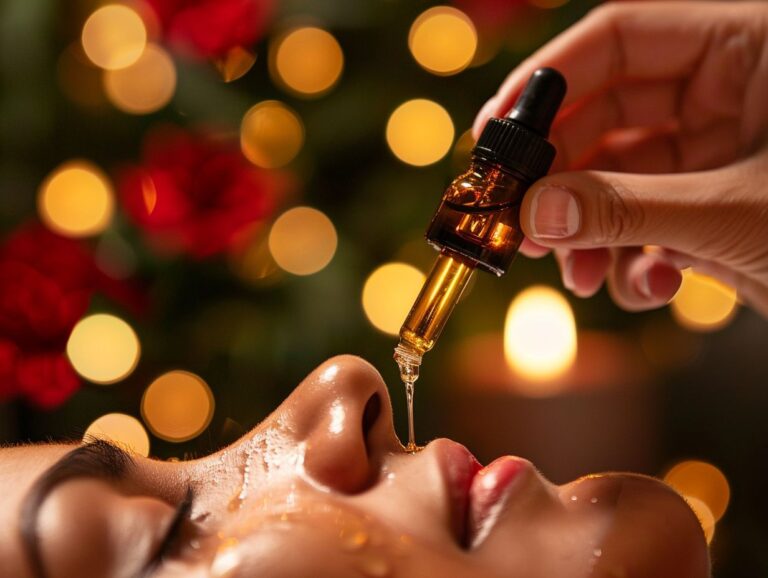
2 Comments